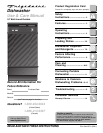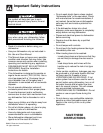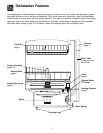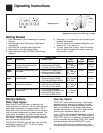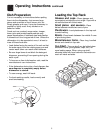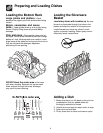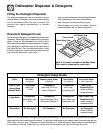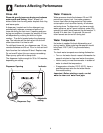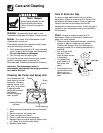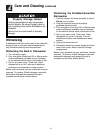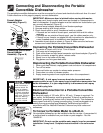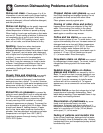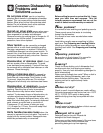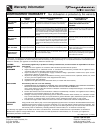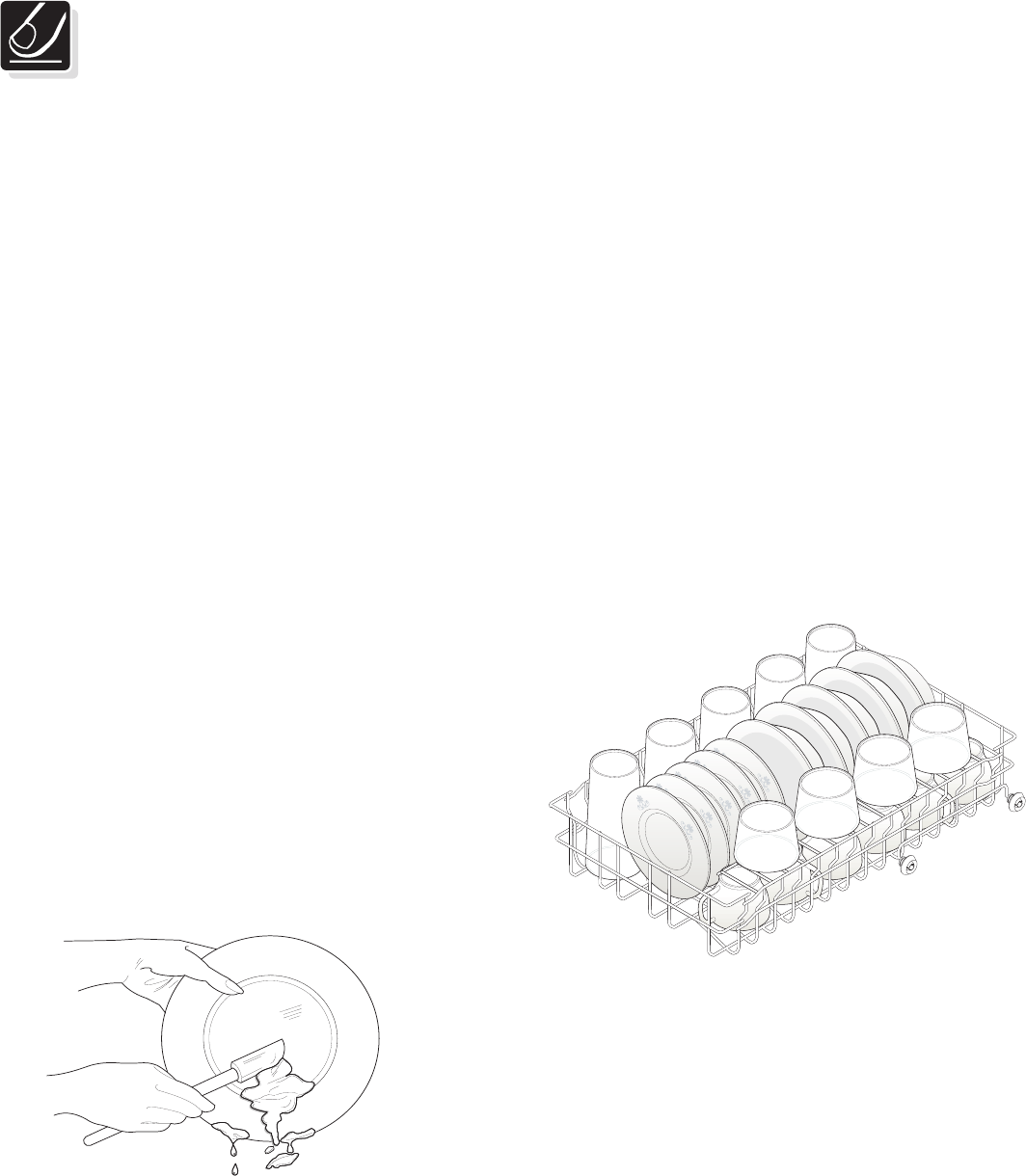
5
Operating Instructions continued
Dish Preparation
It is not necessary to rinse dishes before putting
them into the dishwasher. Just remove large
pieces and quantities of food, bones, pits, etc.
Empty glasses and cups. It may be necessary to
presoak or lightly scour firmly cooked-on or
baked-on foods.
Foods such as mustard, mayonnaise, vinegar,
lemon juice and tomato-based products may
cause discoloration of stainless steel and plastics
if allowed to sit for a long period of time. Unless the
dishwasher is to be operated at once, it is best to
rinse off these food soils.
• Load dishes facing the center of the rack so that
the water spray from the rotating spray arm and
center wash tower can reach soiled surfaces.
• Be sure large items do not block the detergent
dispenser, preventing it from opening during the
wash cycle.
• To be sure an item is dishwasher safe, read the
manufacturer’s care instructions.
• If the dishwasher drains into a food disposer, be
sure disposer is completely empty before
dishwasher is started.
• To save energy, wash full loads.
• For best washing results, load correctly and
avoid overloading.
Loading the Top Rack
Glasses and cups—Place glasses and
cups against outside pins at an angle. Cups with a
concave bottom will collect water.
Small plates and saucers—Place
dishes between middle two rows of pins.
Plasticware—Load plasticware in the top rack
to avoid melting.
Bowls—Place bowls between the middle 2 rows
of pins facing down.
Miscellaneous items—Place long handled
knives and utensils in top rack.
Cup Shelf—The cup shelf can be folded down
over short items (juice glasses, cups, etc.) for
more loading space. When using cup shelf,
alternate items with layer below so that water can
reach all inside surfaces.



